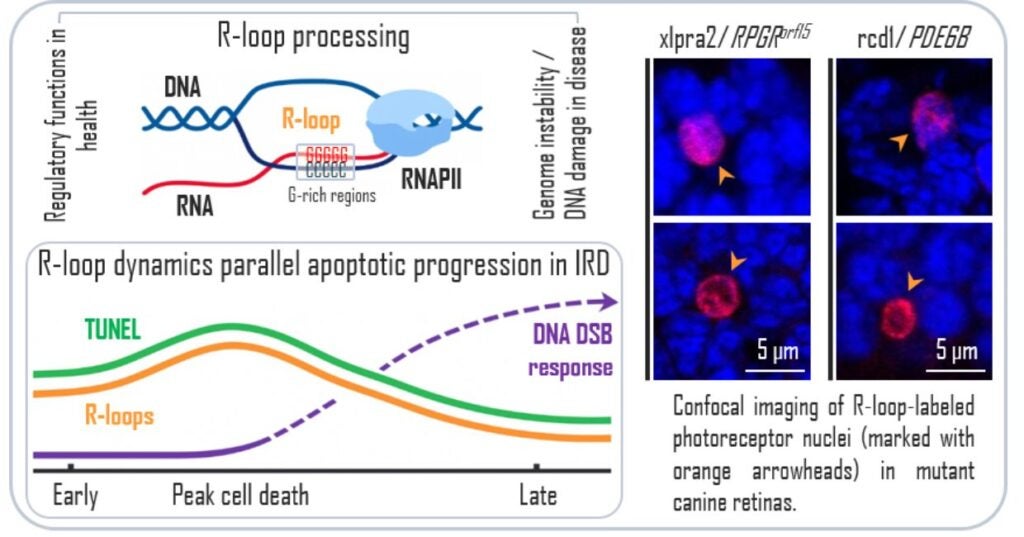Penn Vet’s Institute for Infectious and Zoonotic Diseases Hosts Second Annual Research Retreat
The University of Pennsylvania (Penn) School of Veterinary Medicine’s (Penn Vet) Institute for Infectious and Zoonotic Diseases (IIZD) hosted its annual Faculty Research Retreat on September 3 at the Brandywine Conservancy and Museum of Art in Chadds Ford, PA. The retreat gathered more than 55 leading infectious disease experts, students, and fellows from Penn Vet, Penn’s School of Arts and Sciences (SAS), Perelman School of Medicine (PSOM), Children’s Hospital of Philadelphia (CHOP), and the Wistar Institute.
The event furthered the mission of the IIZD to confront the next zoonotic disease outbreak by fostering cross-campus collaboration, driving scientific innovation, and strengthening the infrastructure of one of the nation’s largest zoonotic disease programs. The retreat agenda featured a keynote lecture, talks by leading experts, breakout discussions, and lightning presentations by the 2025 IIZD Martin and Pamela Winter Fellows.
“Now, more than ever, it is important that we come together to share ideas, to amplify each other’s work, and to discover new opportunities for collaboration. These are challenging times for research and for science more broadly in the United States, and that makes today especially meaningful. This retreat is not just a gathering, it is an act of commitment,” said Julie Ellis, PhD, Associate Director of IIZD and event co-organizer. “It’s our way of saying that the work we do matters, and that we will continue to stand together, support each other, and advance our collective science in the face of unprecedented challenges.”
The keynote address was delivered by Audrey John, MD, PhD, Chief of the Division of Pediatric Infectious Diseases at CHOP and Stanley Plotkin Endowed Chair in Pediatric Infectious Diseases. Her talk, “Parasites, pandemic, puppies, and poop – towards noninvasive diagnosis of infections,” highlighted the ways she is using volatile organic compounds to diagnose infections, from malaria and COVID-19 infections in children to chronic wasting disease in white-tailed deer.
Presentations by Faculty:
- Jeongho Park, DVM, PhD, Associate Professor at the College of Veterinary Medicine at Kangwon National University, Republic of Korea, on fowl adenovirus.
- Susan Weiss, PhD, Professor and Vice Chair of the Department of Microbiology at PSOM, on spillover of MERS coronavirus from camels into humans.
- Nilam Mangalmurti, MD, Associate Professor of Medicine (Pulmonary, Allergy and Critical Care) at PSOM, on the innate immune role of red blood cells.
- Oriol Sunyer, PhD, Professor of Immunology and Pathobiology at Penn Vet, on the regulation of microbiome homeostasis and metabolism by IgM.
- Kevin Niedringhaus, BVetMed, PhD, Assistant Professor of Wildlife Pathology at Penn Vet, on emerging and zoonotic diseases in Pennsylvania wildlife.
- Ricardo Castillo, PhD, DVM, MSPH, Assistant Professor of Biostatistics and Epidemiology at PSOM, on canine rabies in Peru.
- Joseph Zackular, PhD, Assistant Professor of Pathology, Laboratory Medicine, and Microbiology at PSOM and CHOP, on the new Center for Microbial Medicine at CHOP.
- Sara Cherry, PhD, John W. Eckman Professor of Medical Science in the Department of Pathology and Laboratory Medicine at PSOM, Director of the High-throughput Institute for Discovery at UPenn, on the innate immune response to arboviral infections across diverse species.
- Ted Kreider, MD, PhD, Assistant Professor of Medicine (Infectious Diseases) at PSOM, on the in vivo expression of HIV-specific antibodies.
Presentations by the 2025 Martin and Pamela Winter Fellows:
- Breezy Brock, VMD-PhD student, on cell surface expression of the HIV Env protein.
- Clara Malekshahi, PhD student, on the dissemination of highly pathogenic avian influenza by wild birds in North America.
- Maria Maltepes, PhD student, on the evolution of canine influenza virus.
- Jaydeen Sewell, PhD student, on a Coxiella burnetii effector protein involved in immune evasion.
- Máté Vadovics, PhD, on antifungal mRNA therapies.
- Nuriban Valero-Pacheco, PhD, on sex differences in viral immunity.
The retreat provided a forum for faculty and trainees from multiple institutions to establish relationships and build partnerships across a wide array of infectious disease research topics, including virology, immunology, vaccine development, and the microbiome.
“The weather, venue, and beautiful panoramic views of the Brandywine Valley made for a special setting to bring together scientists with diverse interests in infectious diseases, said Dan Beiting, PhD, Associate Director of IIZD. “It was exciting to see how engaged colleagues from Penn Vet, Biology, PSOM, CHOP, and Wistar were in the event, which I think speaks to how IIZD is really connecting individuals and labs from across the campus.”
The retreat was sponsored by the Multidimensional Genomics Research Center, Kangwon National University, Republic of Korea. It was organized by Julie Ellis, PhD, Associate Director of IIZD; Michael Hogan, PhD, Assistant Professor of Pathobiology at Penn Vet; Laurel Redding, VMD, PhD, DACVPM, Associate Professor of Epidemiology at Penn Vet; Lisa Mattei, PhD, IIZD Director of Operations; and Nicole Hurd, IIZD Program Coordinator.
Launched in 2021, the IIZD was founded at a time when the COVID-19 pandemic underscored the threat of zoonotic diseases and the power of basic and translational research. Since its inception, IIZD has awarded over $3.6M in grants to support pilot studies, pre- and post-doctoral fellowships, and faculty recruitment.
To learn more about IIZD’s role in protecting populations against deadly animal and human health threats, click here.
Related News

Penn Vet Announces Fourth Annual Symposium on Zoonotic Disease Research
The Institute for Infectious and Zoonotic Diseases (IIZD) at the University of Pennsylvania’s School of Veterinary Medicine (Penn Vet) has announced the agenda for its 2026 IIZD Symposium. The event…

Penn Vet Researchers Uncover a Shared Cellular Stress Signal that May Drive Vision Loss in Retinitis Pigmentosa
Study finds buildup of unusual RNA-DNA loops in degenerating photoreceptors, pointing to a shared molecular stress pathway across distinct genetic forms of inherited blindness.
About Penn Vet
Ranked among the top ten veterinary schools worldwide, the University of Pennsylvania School of Veterinary Medicine (Penn Vet) is a global leader in veterinary education, research, and clinical care. Founded in 1884, Penn Vet is the first veterinary school developed in association with a medical school. The school is a proud member of the One Health initiative, linking human, animal, and environmental health.
Penn Vet serves a diverse population of animals at its two campuses, which include extensive diagnostic and research laboratories. Ryan Hospital in Philadelphia provides care for dogs, cats, and other domestic/companion animals, handling more than 30,000 patient visits a year. New Bolton Center, Penn Vet’s large-animal hospital on nearly 700 acres in rural Kennett Square, PA, cares for horses and livestock/farm animals. The hospital handles more than 6,300 patient visits a year, while our Field Services have gone out on more than 5,500 farm service calls, treating some 22,400 patients at local farms. In addition, New Bolton Center’s campus includes a swine center, working dairy, and poultry unit that provide valuable research for the agriculture industry.

